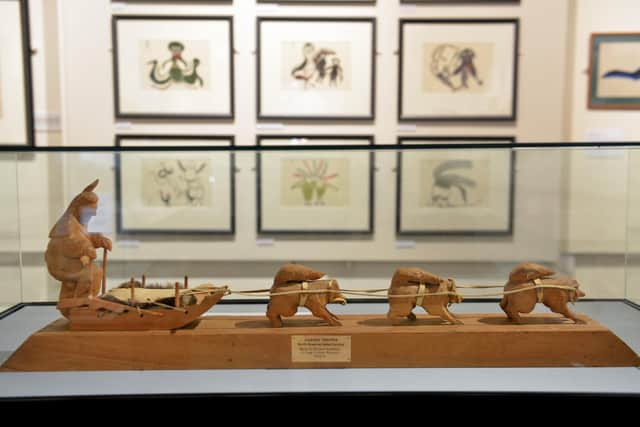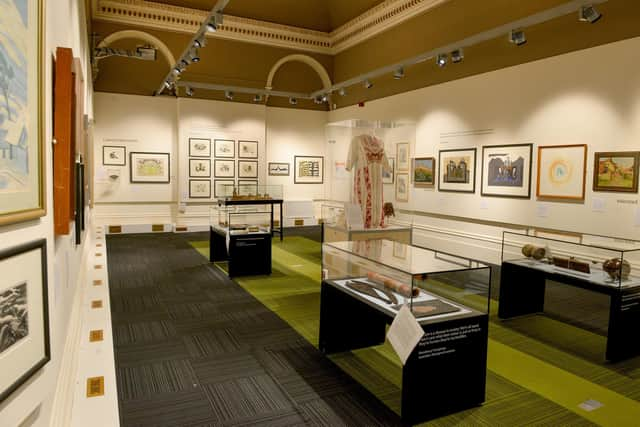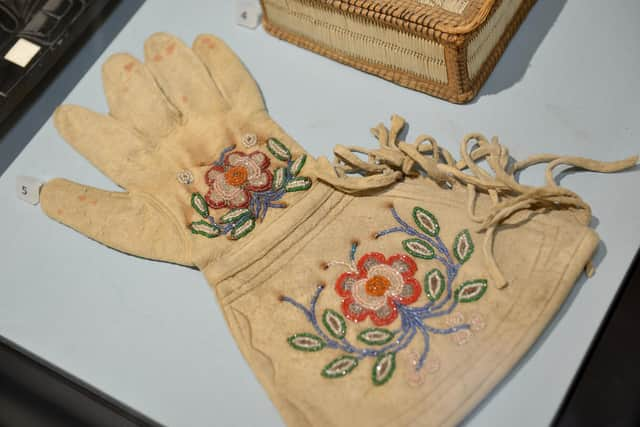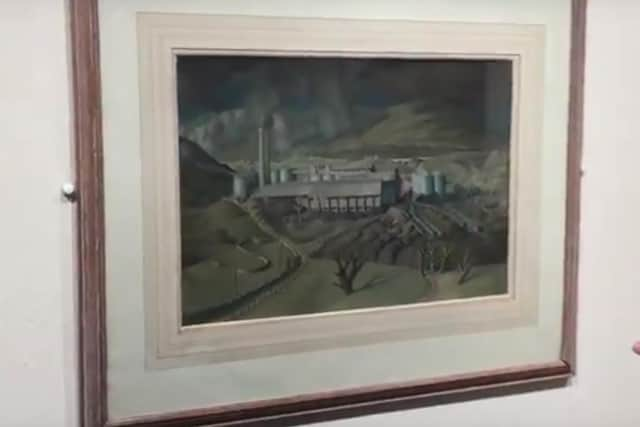Buxton Museum hosts dazzling collection of art and objects which laid buried for 30 years
and live on Freeview channel 276
This article contains affiliate links. We may earn a small commission on items purchased through this article, but that does not affect our editorial judgement.
The exhibition comes at the worst possible time as staff prepare for the building to be closed due to the coronavirus outbreak.
However members of the public will be able to view exhibits - just a portion of the 2,500-strong collection - as museum curators post images and videos about them online.
Advertisement
Hide AdAdvertisement
Hide AdThe collection features paintings from Jews who fled the Holocaust or others harassed by cultural persecution as well as objects from indigenous peoples who suffered under colonial rule.


It had been shown and lent to schools around Derbyshire since the late 1930s but this part of the service ended when school curriculums became more tightly-controlled in the late-1980s.
Derbyshire Schools Library Service had spent decades amassing the collection from galleries across the country.
The collection - which includes Tibetan drums made of human skulls, Aboriginal burial tubes which contained human bones and native American ornamental belts - is now set to be re-homed at galleries across the country.
Advertisement
Hide AdRecipients include Sheffield Hallam’s Special Collection, The Hepworth Wakefield and Northampton Museum among others.
Advertisement
Hide Ad

The exhibition - named Between Two Worlds - features well known artists such as John Minton, Fred Ulhman, Josef Herman and Ben Enwonwu.
Though many of the works are by migrants fleeing persecution some are rooted in Derbyshire and Buxton.
A work by Sheffield-born painter Harry Epworth Allen called ‘Disabled’ features an industrial scene from the Hope Valley.
Advertisement
Hide Ad

Speaking about Allen, Curator Anna Rhodes said: “He served in the war (WW1), was really badly injured and ended up having his leg amputated and felt that when he came back he didn’t really fit into society.
“He didn’t know what to do with himself but he was a fantastic painter and we’ve now got two of his paintings from the schools library service that are coming into the collection at Buxton Museum.”
Advertisement
Hide AdAnother striking exhibit in the collection features paintings by Inuit artist Pitaloosie Saila.
Anna said: “These were prints the Inuit people made and then realised were a way of making money by selling them on the market.
Advertisement
Hide Ad

“With the Inuits we talk to visiting children about how their lives were disrupted by European settlers - kids were taken away from parents and reeducated.
“People weren’t allowed to speak in their own language.
“The overall theme of the exhibition is how art is a kind of therapy - Between Two Worlds is the idea you could have a tremendous trauma but produce these beautiful things.”
Though Buxton Museum will keep some works over 1,000 paintings will be dispersed to 30 museums and galleries across the UK - thanks to funding from the Esmée Fairbairn Collections Fund.
Advertisement
Hide AdAnna said: “It’s a last chance for people to see this work together before it’s dispersed.
Advertisement
Hide Ad“But the paintings will now go out to places where they’ll be cared for and be interpreted by people they mean something to.”
To see more images and videos of the works in the coming weeks click HERE.
